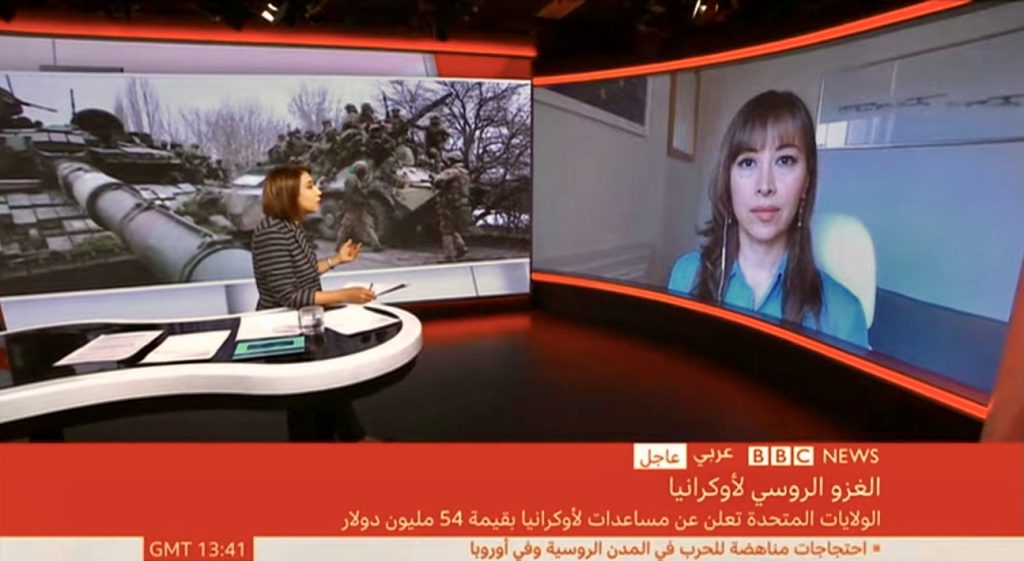In this interview with BBC Arabic, Dr Carole Nakhle, CEO of Crystol Energy, discusses the economic impact of the sanctions on Russia and the global economy.
Dr Nakhle argues that the biggest challenge that western powers are facing is how to cause significant economic pain to Russia while minimising disruptions to global trade, economy and energy markets. Many countries and regions, particularly Europe, rely on Russian and Ukrainian exports of energy, basic commodities and precious metals.
On the bright side, the EU is speaking with one voice despite the disparities among its members with respect to relying on Russian supplies. However, the effectiveness of the announced sanctions is questionable at least in the short term.
Russia can get around excluding its banks from the SWIFT financial system though that will increase the transaction cost of the trade as money will eventually find new channels. The freezing of the Russian Central Bank’s dollarized and foreign assets will have a deeper impact. In the last decade, Russia was able to build significant reserves in foreign currencies and are estimated to be around 630 billion USD which equate to 15% of the Russian GDP. Restricting access to these reserves will prevent Russia from buffering the collapse of its currency and government spending.
Countries like the US, Canada and Australia are less exposed than Europe to potential retaliation from Russia, especially in terms of cutting energy exports. For Europe, the picture is more complicated, as the reliance on Russia increases the more one goes east. Germany and Austria will, for example, be more impacted than the United Kingdom or Spain.
The conflict is not only impacting energy markets but other markets as well, particularly grains. Both Russia and Ukraine are large exporters of wheat and corn. We are already seeing higher prices in those markets. Any supply disruptions will simply exacerbate the situation.
Related Analysis
“A suspenseful start for oil prices in 2022“, Dr Carole Nakhle, Feb 2022
“No endgame for Ukraine“, Christof Rühl, Feb 2022
“Oil markets: What crisis?“, Dr Carole Nakhle, Nov 2021
Related Comments
“Global Economy and Energy Markets Weekly Commentary – 27th Feb ’22“, Christof Rühl, Feb 2022
“Ukraine and Oil“, Dr Carole Nakhle, Feb 2022
“Can Russia withstand another wave of sanctions?“, Dr Carole Nakhle, Feb 2022
“Russian-Ukrainian crisis and energy markets“, Dr Carole Nakhle, Feb 2022
“EU Energy Policy amidst the Current Gas Crisis“, Dr Carole Nakhle, Feb 2022
“Did Russia deliberately cause the gas crisis in Europe?“, Dr Carole Nakhle, Jan 2022









